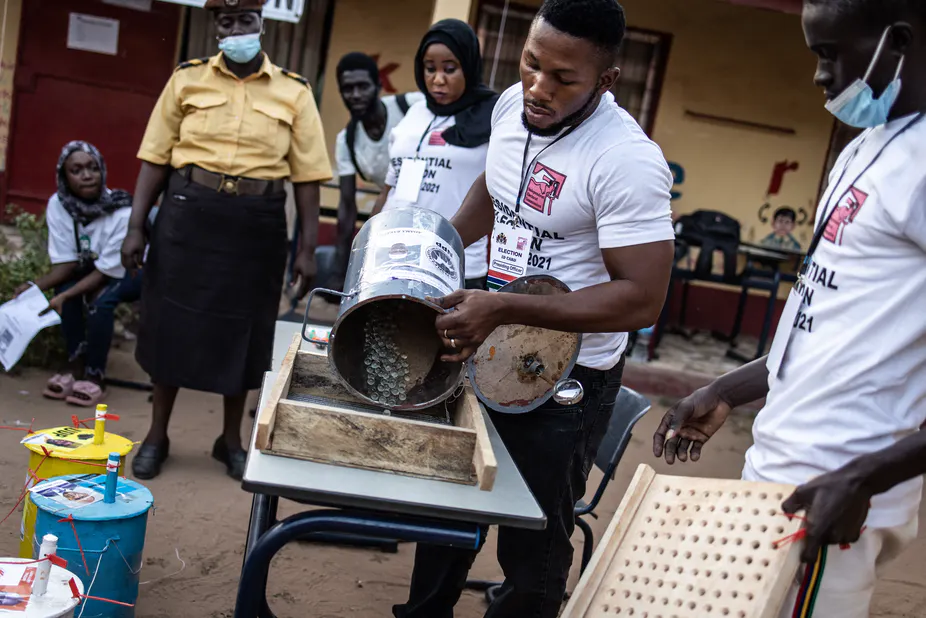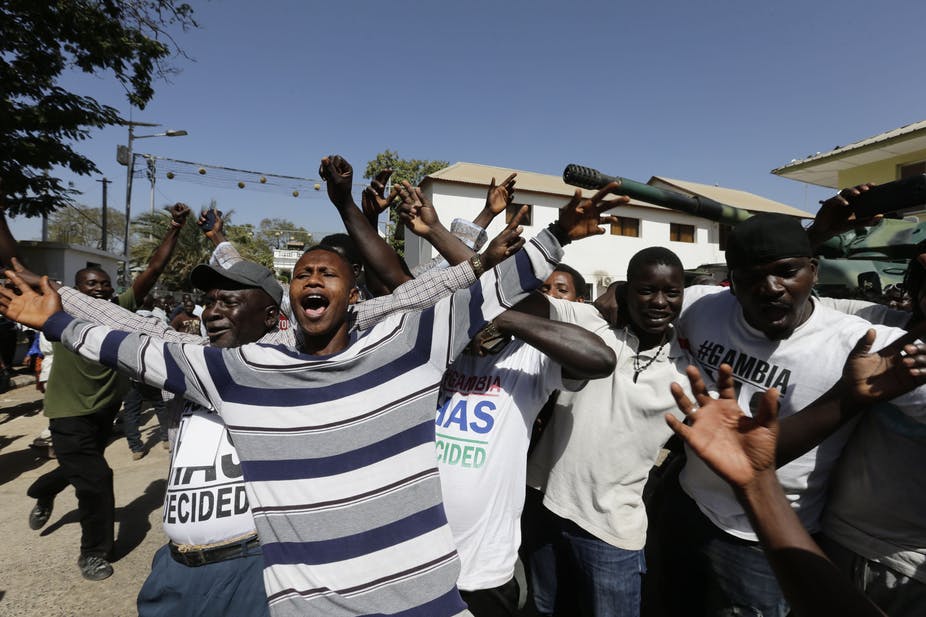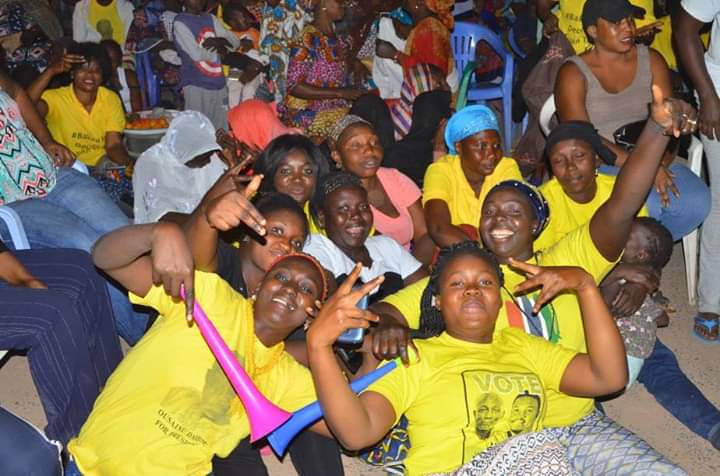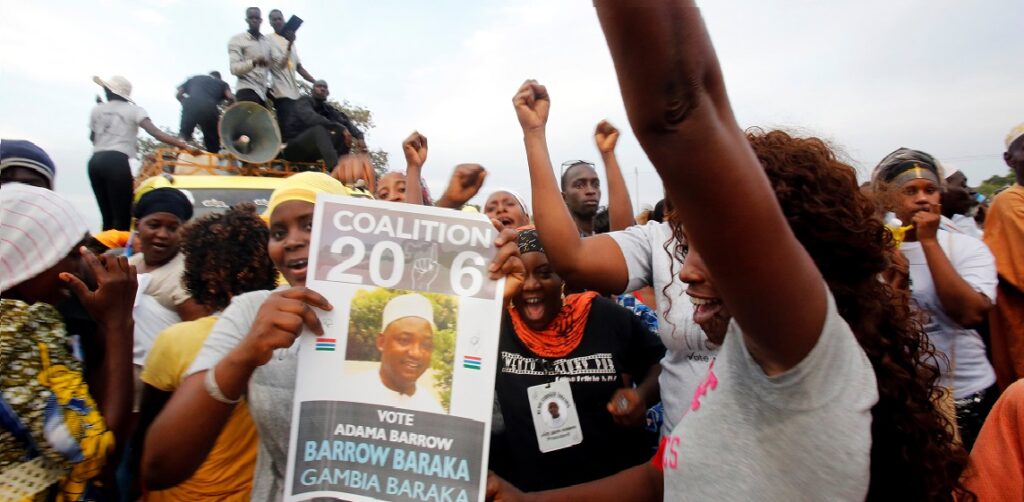
The Gambia’s political party leadership and governance system are fashioned in the image of creating a dreaded demigod, and a leader’s cult of personality emphasised by individual dedication and loyalty to the all-powerful leader.
He exemplified and directed the tribal culture howsoever he wills through domination or a rule maintained through ideological or cultural means.
The political class lives under a pathological fear of the tribal leader. The party members must follow and support the leaders not because they love them or believe in them but because they are afraid of them.
The leader moves to become a party, the space he vacates ceases. The country is a graveyard of erstwhile popular political parties.
The problem at hand is not party hopping but the practice of party politics. First, political parties in the Gambia are purely vehicles for ascending to power. None subscribes to any ideology or ism.
Secondly, party nominations are always a terrible mess. It is worrying when the leaders of major political parties push for such an amendment and whip their party MPs to vote for it.
Not only are they being insincere, but they are trying to perpetuate the dictatorship of party leaders, which is an affront to democracy.
This almost instinctive reaction to political and economic hardship demonstrates the continuing role of a political party is as the means through which a class unity can achieve a collective will and become a political force.
Indeed, this understanding has long been discussed in the Marxist tradition; from Karl Marx and Friedrich Engels’ analysis in The Communist Manifesto to Lenin’s discussion of the vanguard party, Antonio Gramsci’s remarks on the “modern prince” in the Prison Notebooks, and indeed Nicos Poulantzas’ reflection in Political Power and Social Classes.
Of course, the Leninist vanguard party and the social-democratic mass party have provided different solutions for pursuing this mission of a successful political party.
However, in the Gambia, our political parties erect a vast bureaucracy only to attend to what the Italian Marxist philosopher Antonio Gramsci called “centralising, organising, and disciplining” the mass of supporters.
Robert Michels, a German-born-Italian sociologist, belonged to the Italian school of elitism and, one of the pioneers of the theory of the modern party, attacked this burgeoning bureaucracy as the root of the “iron law oligarchy.”
However, he argued that its emergence reflected a fundamental necessity of mass organisation. “Organisation, based on the principle of least effort, that is to say upon the greatest possible energy economy, is the weapon of the weak against the strong.”
The party thereby acts as a “structural aggregate,” providing members with a way to amalgamate their forces and overcome that isolation — which, as Nicos Poulantzas noted, otherwise defines workers’ experience, constantly disorganised by the “divide and rule” policy advanced by capital and the state.
We have not yet developed matured political parties in the Gambia; what we have in the Gambia are political parties that serve as vehicles for contesting political seats and power.
After elections, we trashed the party immediately; the objective is achieved after elections. Most of Gambia’s political parties do not have branches and offices countrywide other than ad hoc groups and offices.

None of the political parties have validly elected officials in leadership positions. When parties fail the democratic test, as they have done so far, they lose the legitimacy to govern a nation.
Some of Gambia’s dominant “Sosalasso political parties” are a haven of personality cults, a temporary arrangement of convenience. I hope we learn something from the US election contest.
Our politics has regressed to depend more and more on identity politics rather than policy or ideology. The principal qualification for advancement in the mainstream political parties is a record of serial defections, coupled with the determination to sacrifice principles at the altar of self-interest. The ability to rain unprovoked insults on friends and foes is an added advantage.
In 1604, England’s Lord Coke declared that “every man’s house is his castle.” I agree and believe it should be so with our democratic practice too. A political party, no matter how miserably small or poor or frail, should in peace enjoy whatever victory it legitimately attained in elections without a rapacious president and his party using state powers to steal its trophy.
I find the judicial words of William Pitt, Earl of Chatham, very useful here: “The poorest man may in his cottage bid defiance to all the forces of the Crown. It may be frail – its roof may shake – the wind may blow through it – the storm may enter – the rain may enter -but the King of England cannot enter – all his force dares not cross the threshold of the ruined tenement.”
Our dominant Sosalasso political parties, mainly the ruling party, come after smaller “Tafyengal periphery political parties,” and the big Sosalaaso predatory parties benefit from Willian Pitt’s wisdom. His words are eternal, but, of course, every rule has an exception.
In one sentence, Lord Denning, Master of the Rolls, provided that exception: “No man’s house is to be used as a hiding place for thieves or a receptacle for stolen goods.”
In other words, a man’s house ceases to be his inviolable castle if he uses it as a sanctuary for rogues and a place of refuge for stolen items.
I think it should be unconstitutional for politicians to seek votes on the platform of one political party and then defect to another after their election—it is just plain, vulgar political treachery against their voters.

I hope the same legal logic will apply to defecting National Assembly members and even independent politicians despite their constitutional immunity from consequences for legal infractions.
The ease and casualness with which elected politicians hop from one party to the other in the Gambia are genuinely unsettling. It has ensured no difference between the political parties in terms of political ideology or ideals.
We all know some politician’s actions and behaviours are an immoral, conscienceless bunch, but their perpetual “crosstitution” (as South Africans call defection, which is a blend of “crossing” and “prostitution,” implying that elected officials who switch political parties are political prostitutes) is bad for the growth of democracy in the Gambia.
No matter how fertile a woman may be, she cannot birth a child without the seminal spark. Contesting on the platform of a political party should be the same as signing a marriage contract.
Our constitution says you can contest in your name as an independent candidate, but when you contest under the platform of a political party, you must carry you on its back, well girded, to the polls.
So, the party is the husband, and the candidate is the wife. In Finland and Niumi land, the rich can only snatch the poor man’s wife and cannot snatch his children. Finland and Niumiland have a well-defined culture and tradition with similar rules. The man who paid the bride price is the husband, and it is he who owns every child from the woman’s womb.
The bigger political parties in the Gambia are not just a hiding place for thieves; it wantonly warehouses stolen offices and publicly celebrates the fullness of its dubious barn.
The United Democratic Party (UDP) came to power on the wings of something it called “unity and integrity” deploring the depraved ways of the fallen angel.
Nevertheless, the National People’s Party (NPP) today has, since its coming in 2020, outdone the UDP, PPP, PDOIS, GDC, GMC, and Citizen Alliance in all the bad things for which Satan lost his throne.

As confessed by Buhari, his party has become very rich and big “because it has thrown open its doors to defectors from other parties, big and small.”
A woman who proudly ‘throws open’ her ‘doors’ to every desiring wayfarer has descended into harlotry. Perhaps I was wrong in a paragraph above where I said that our political party’ lacked character.
There is a point where habit and character cohere. A consistent line of behaviour is what is called character. A party with “democracy” in its name should ensure that democracy is in its DNA. It must always project fidelity to its constitution, the Political Parties’ Act, and good manners.
After all, the least we expect are ego massaging, fisticuff internal party elections, hand-picking of officials, ejections, dissonance, disarray, and the total absence of concise, coherent, and distinguishing party platforms:
Political parties in the Gambia need to face and overcome several challenges to remain capable instruments of democracy. The Gambia’s political party architecture is built on top-heavy bureaucracies navigated by strongmen – its “owners.”

Political Parties are weak by design and deliberately set up to dysfunction. The party officials – its apparatchiks, are usually expected to play subservient roles to secure party “crumbs” and government appointments through political patronage and overlapping mandates: a cacophony.
Fundamental structural flaws cannot naturally be cured by “change of guard.” Let us empathise (not sympathise!) with the political parties in the Gambia since pre-independence. Our political outfits and political movements are a mess.
By Alagi Yorro Jallow











Recent Comments